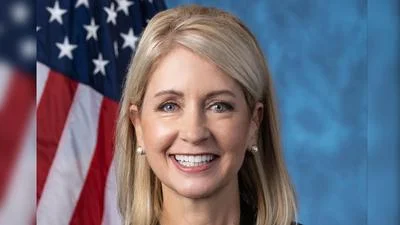Former Champaign Board of Education member Scott Tapley doesn't worry about students missing out on school this year, as he says public schools review the previous year's material each autumn. | Annie Spratt
Former Champaign Board of Education member Scott Tapley doesn't worry about students missing out on school this year, as he says public schools review the previous year's material each autumn. | Annie Spratt
A former Champaign County Board of Education member said with the redundancy of learning built into each school year, he does not see problems for students learning at home for the rest of the school year.
Gov. J.B. Pritzker ordered all Illinois schools closed to in-school instruction for the rest of the academic year. School systems switched to remote learning when his initial closure order went into effect.
“I’ve said time and time again, our decisions are hard ones, but they follow the science — and the science says our students can’t go back to their normal routine,” Pritzker posted on his Facebook page. “Therefore, I am suspending in-person learning in schools for the remainder of the 2019-2020 school year."
Scott Tapley, who served on the Champaign County Board of Education for nine years, said public schools spend about a third of the year relearning what was taught the previous year.
If a student did not learn enough in the next six weeks to two months, they probably would not fall too far behind because of the relearning he said gets done in the fall.
“We might have a unique perspective because we home-schooled all of our kids,” Tapley told the Chambana Sun.
He said some students might have a problem with remote learning, though. “There could be an issue for anybody living in a poorer household that doesn’t have internet access or a computer to use."
Pritzker said the state will work with school districts that have unique challenges. Schools with low-income students and communities will get helpful resources from the state.
“I supposed if you are the kind of person who gets sentimental about walking down the aisle with your cap and gown, they may just miss out on it,” Tapley said. “That’s unfortunate, but probably better than rising, adding to the death toll.”
Though Tapley said his wife did most of the homeschooling, he offered some advice to parents new to teaching their kids.
“If they tried to reach out, they might be able to plug into the local home-school networks with people already doing it,” he said.
He knows these groups have slowed down as their cooperative efforts were made more difficult by social distancing orders, but they could still offer help.
“The biggest thing I think is to be creative," Tapley said. "Everybody has got different learning styles and speeds, and you have to find what works for you."
Tapley does not know how flexible schools are being with teaching methods for home schooling, but for students who learn more through visual means, a livestream may be beneficial. For a person who would rather read and learn, the livestream is not as accommodating.
“Figure out what works with you and go with it,” Tapley suggests.






 Alerts Sign-up
Alerts Sign-up